(174152 products available)








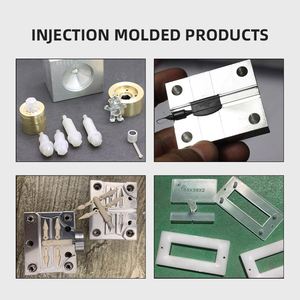

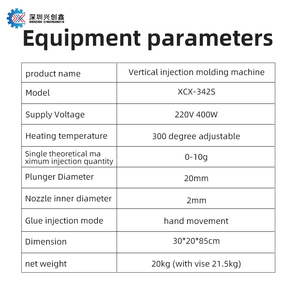



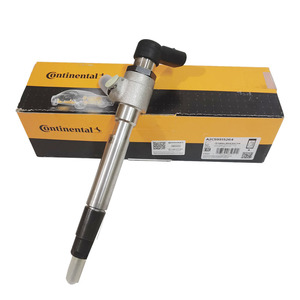









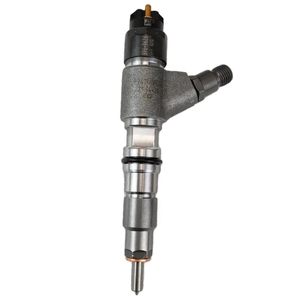
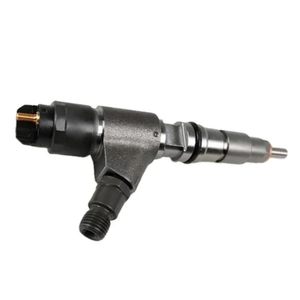
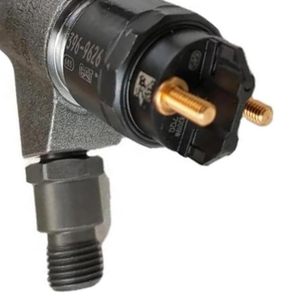










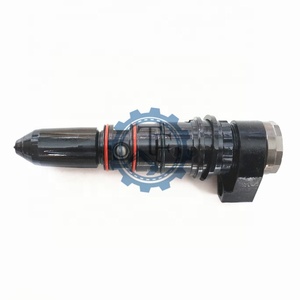

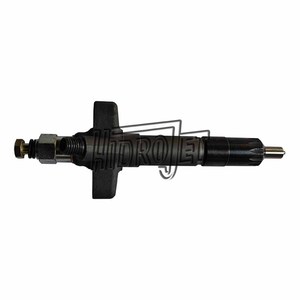


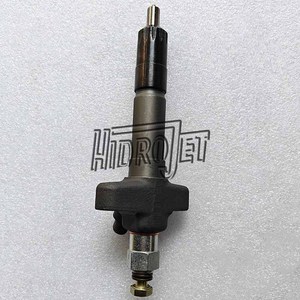
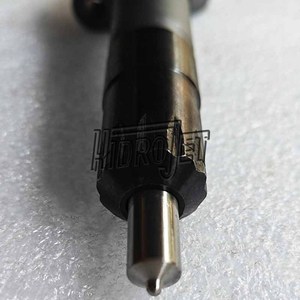




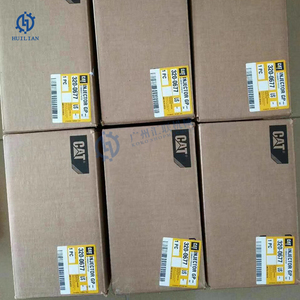


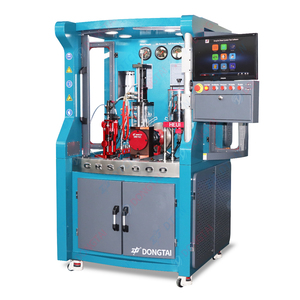

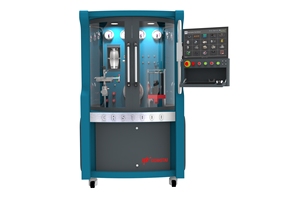



















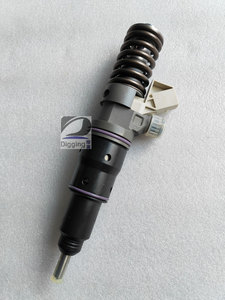







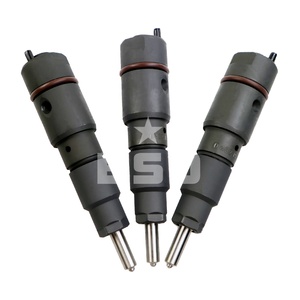


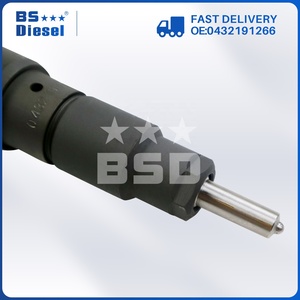

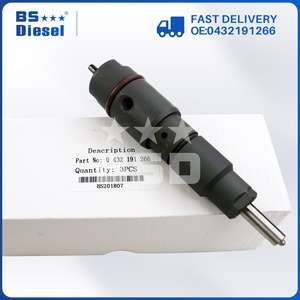







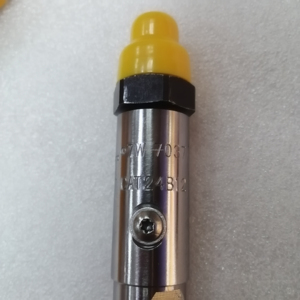


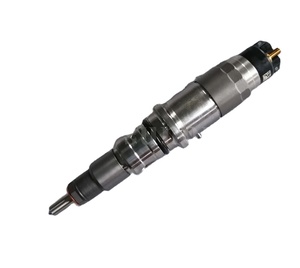

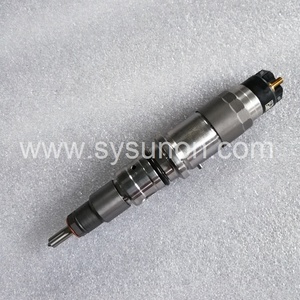
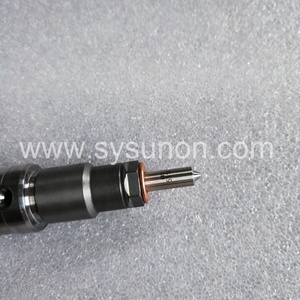
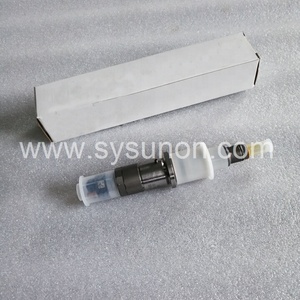





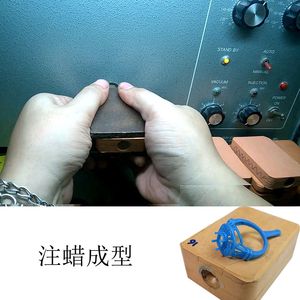



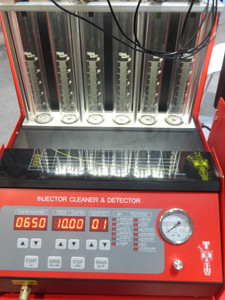
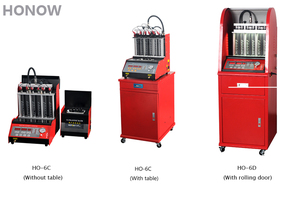

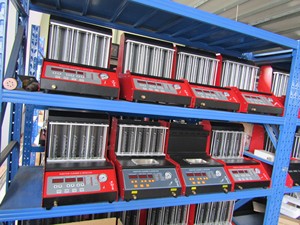
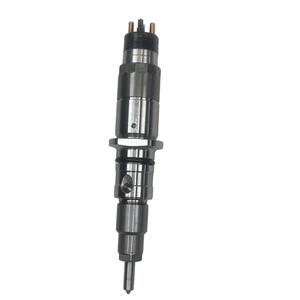





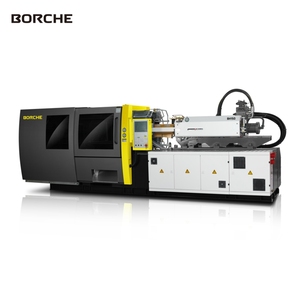


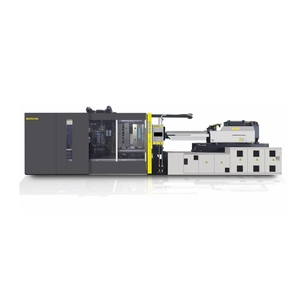




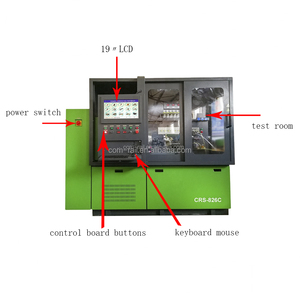


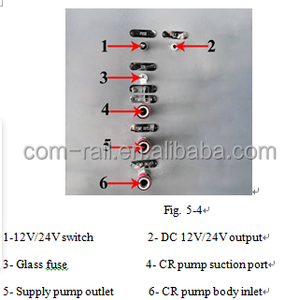

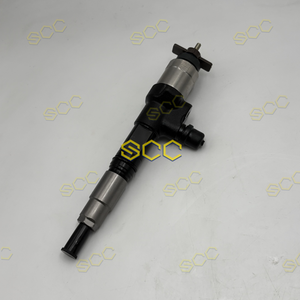
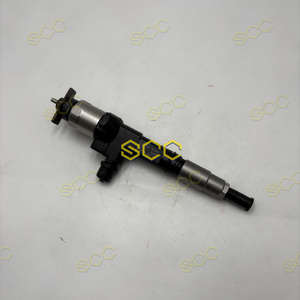



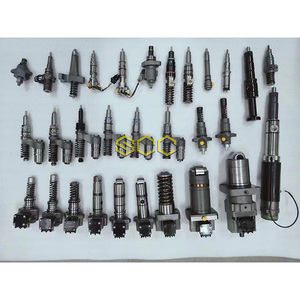






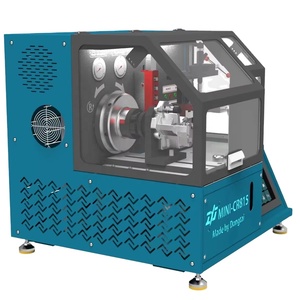

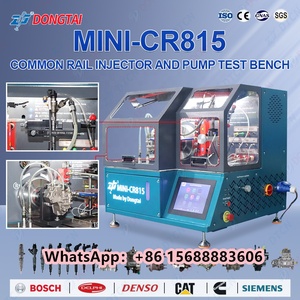









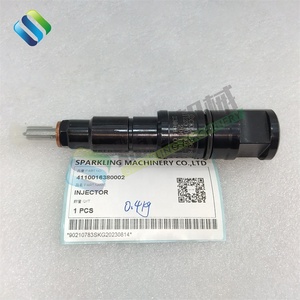


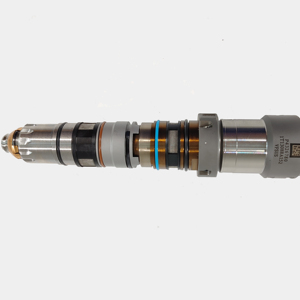
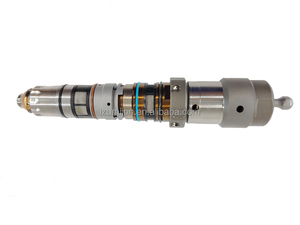

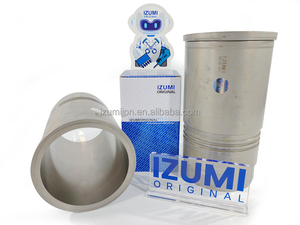



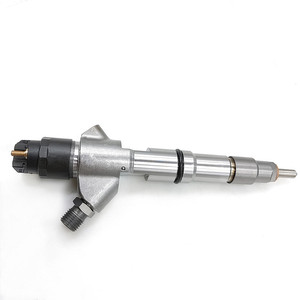



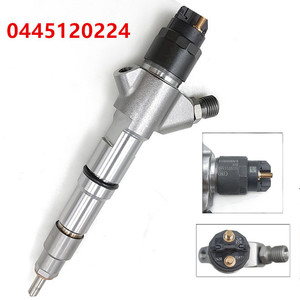
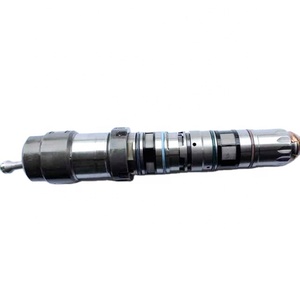



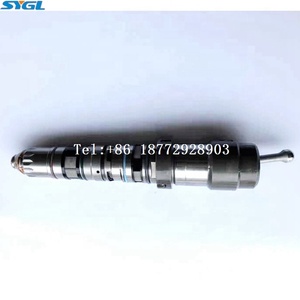



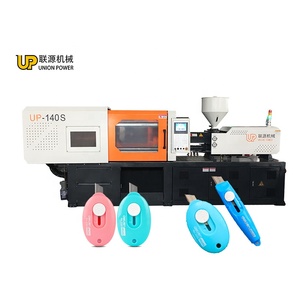
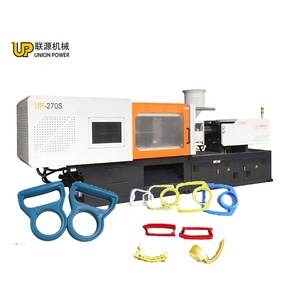


Machinery injectors are divided into different categories depending on their design and application. Here are some common types of machinery fuel injectors:
Gasoline Direct Injection (GDI) Injectors
GDI machinery fuel injectors directly inject fuel into the combustion chamber of each cylinder. This allows for precise control of the air-fuel mixture, improving fuel efficiency and emissions. GDI technology is widely used in modern gasoline engines, especially in vehicles and equipment that require high performance.
Port Fuel Injection (PFI) Injectors
PFI machinery fuel injectors introduce fuel into the intake manifold, where it mixes with air before entering the combustion chamber. While not as efficient as GDI injectors, PFI injectors provide smoother operation and are often used in conjunction with GDI technology in some engines.
Common Rail Direct Fuel Injection
Common-rail direct injection machinery injector uses a common fuel rail to supply pressurized diesel fuel to all injectors. This allows for multiple injection events per combustion cycle, enhancing combustion control, reducing emissions, and improving overall engine performance. Common-rail technology is standard in modern diesel engines, including those used in heavy machinery, trucks, and buses.
Mechanical Fuel Injectors
These are traditional diesel machinery injectors that use engine vacuum or pressure differentials to atomize fuel into the combustion chamber. While less precise and efficient than electronic injectors, mechanical injectors are durable and reliable, making them suitable for use in many diesel engines.
Multi-Hole Fuel Injectors
These injectors feature multiple small nozzles (holes) that create a fine mist of fuel when injecting it into the air stream or combustion chamber. This improves fuel atomization and distribution, leading to better combustion efficiency and reduced emissions. Multi-hole designs are common in high-performance and low-emission engines.
Turbocharged Direct Injection (TDI) Fuel Injectors
These specialized high-performance fuel injectors are designed for turbocharged engines that use direct injection technology. TDI injectors deliver precise amounts of fuel under high pressure to optimize combustion in high-temperature and high-pressure conditions created by turbocharging. This maximizes power output and efficiency in turbocharged vehicles and machinery.
Below are some of the specifications of machinery injectors.
Flow rate
Every machinery fuel injector has a flow rate that determines the quantity of fuel it can dispense into the combustion chamber. The flow rate is measured in pounds per hour (lb/hr) or kilograms per hour (kg/hr). Higher flow rates are needed for high-performance engines, while lower flow rates are suitable for fuel-efficient engines.
Spray pattern
Injectors use various spray patterns that influence how fuel mixes with air in the combustion chamber. The patterns include a cone, hollow cone, or fan. Each pattern has its advantages depending on the engine design and operating conditions.
Opening and closing time
The time it takes for an injector to open and close is crucial for precise fuel delivery. Fast opening and closing times are essential for high-speed engines, while slower times may be acceptable for low-speed or heavy-duty engines.
Operating pressure
Machinery fuel injectors operate at specific fuel pressure levels, typically ranging from 200 to 3000 psi. Higher pressure results in better fuel atomization and combustion efficiency. However, machinery fuel injectors with increased pressure are more expensive and require more maintenance.
Below are some of the ways to maintain machinery fuel injectors.
Regular inspection
Regular injector inspection is essential for identifying and addressing potential issues early. Look out for signs of fuel leaks, injector gumming or coking, and fuel drips or smoke from the exhaust pipe. Additionally, visually inspect the electrical connections, mounting bolts, and fuel lines for wear, damage, or loose connections.
Scheduled cleaning
Over time, deposits from fuel additives, combustion byproducts, and impurities can build up and affect machinery injector performance. Regular cleaning helps to prevent and remove these deposits. Use a quality injector cleaner to remove deposits from the injector external surfaces. For cleaning the internal components, it is advisable to seek a professional service that uses specialized cleaning equipment and solvents.
Filter replacement
Clogged filters prevent smooth fuel flow to the injector, causing uneven fuel delivery and compromised engine performance. Therefore, regularly inspect and replace fuel filters as per the manufacturer's instructions. Additionally, air filters should be replaced to keep dirt and contaminants from entering the fuel system.
Electrical and mechanical checks
Periodically check the electrical components connected to the machinery injector. These components include the fuel injector driver circuit, fuel pump relay, and engine control unit (ECU). Use a multimeter to confirm that all components are working within the specified voltage and resistance ranges. Mechanical components such as fuel lines, connectors, and mounting hardware should also be checked for wear, damage, or loose connections.
Use quality fuel and additives
Using quality fuel and additives is essential for maintaining optimal injector performance and engine health. Good quality fuel has the required octane or cetane ratings with minimal impurities and deposits. Additionally, use fuel additives recommended by the machinery manufacturer to enhance fuel injector cleanliness and overall fuel system performance.
With many options available, choosing the right injector machinery for specific needs can be daunting. Here are some tips to guide the selection process:
Consider the type of engine:
The kind of engine will determine the type of machinery injector to choose. For instance, use gasoline direct injection machinery in gasoline engines, while in diesel engines, choose a high-pressure common rail diesel machinery injector.
Evaluate engine performance demands:
Consider the performance needs of the engine. If the focus is on fuel efficiency and lower emissions, then a GDI injector should be the preferred choice. However, for high power output and performance demands, a high-pressure diesel injector would be ideal.
Compatibility:
Once the type of engine and performance demands are determined, it is crucial to ensure that the chosen machinery injector parts are compatible with the existing engine components. This includes checking specifications such as the injector size, flow rate, and mounting arrangements.
Quality and reliability:
When choosing machinery injector parts, consider those with quality and reliability. This will ensure durability, reducing the need for frequent replacements. Look for reputable brands and suppliers offering quality products.
Ease of installation and maintenance:
Consider the ease of installing and maintaining the machinery injector. Some injectors may require specialized tools and expertise for installation, while others may be more straightforward. Additionally, choose injectors that are easy to clean and maintain, saving both time and costs.
Cost:
Cost is an important consideration when choosing machinery injectors. There are different types and brands of injectors, each with its own price point. Setting a budget before shopping for an injector is advisable. However, don't compromise on quality for the price.
Environmental regulations:
Depending on the location, some environmental regulations limit the type of machinery and its emissions. Before purchasing an injector, ensure it complies with the existing environmental regulations.
Before attempting to replace an injector, it is important to have the right tools and machinery diesel engine knowledge. Below are step-by-step instructions on how to replace machinery injectors.
Q1: How does one know an injector is bad?
A1: Bad or failing machinery injectors have different signs and symptoms. They include rough engine noises, slow engine acceleration, and excessive black smoke from the exhaust pipe. Other signs include engine misfire, reduced power, and fuel consumption.
Q2: Can one repair a bad injector?
A2: Yes, it is possible to repair bad machinery injectors. However, depending on the severity of the condition, sometimes,, it is better to replace the injector rather than repair it.
Q3: Can someone clean injectors themselves?
A3: Yes, machinery injector cleaning is a process that anyone can perform. However, it requires following the correct procedures and using the right equipment. There are DIY injector cleaning kits available that can help. Otherwise, for best results, it is advisable to take the injectors to a professional.